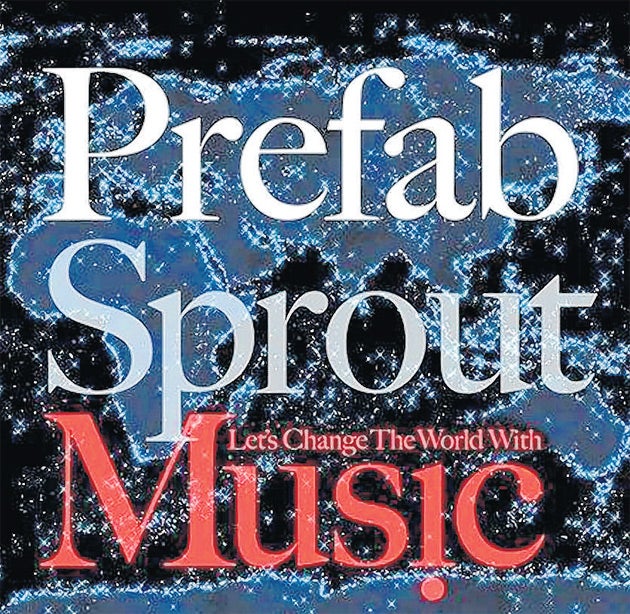The title of Prefab Sprout's first album in eight years embodies the kind of vaunting egotism one might expect from Bono, Sting or some other mononymic would-be saviour, and one's first instinct is to suppose it's ironically intended. But Paddy McAloon, while widely regarded as a songwriter of considerable sophistication, is not best known for an ironic worldview. Could this, then, be a straight-faced implication of the album's contents?
Well, yes, albeit not quite as arrogantly as that might seem. In an explanatory sleevenote, McAloon explains how, since his teens, he's been fascinated by Brian Wilson's long-lost Smile album, and particularly about Wilson's notion that it was a form of "spiritual music", less in the strict gospel sense than in the broader meaning of music engaged in the transcendence of worldly necessities. By 1992, McAloon had determined that the follow-up to Jordan: The Comeback would entail his own attempt to emulate Wilson's quest, and he set about recording demos of songs likewise aimed at securing "transcendence through music".
They were never released. Until now. His original grandiose design has been trimmed to just 11 songs, in which musical and religious imagery are blended together, interchangeable elements pointing to a single unified idea of musical godhead. It's unclear whether he's altered any of these tracks, but judging by the period tones and textures employed throughout, possibly not. The stalking synth keys, striding pop-funk groove and 1980s sonic palette of "Ride", and the neatly manicured, loping swing-pop of "I Love Music", resemble a sort of Mormon version of Steely Dan, with their hipster cynicism replaced by a wide-eyed evangelical naïveté. "Who can know if our time on earth's the soundcheck, or the show?" McAloon muses in the former, while the latter cites Miles, Chic, Boulez and Debussy as examples of the music he loves.
Elsewhere, "Meet the New Mozart" makes coy play with the notions of high and low art, and "Music Is a Princess" offers self-explanatory obeisance to music. The tone of the album, however, is perhaps best conveyed by the glutinous celebration of sentimentality "Last of the Great Romantics" and "Angel of Love", the musical equivalent of swaddling-clothes. But it's "Sweet Gospel Music" that reveals the shortcomings of his design, involving as it does a fundamental misapprehension about gospel music, which is rarely the sweet, peaceful thing he eulogises here, but the kind of raging emotional torrent he seems unable to access. Let's Change the World with Music may be a sophisticated, smartly turned piece of work, but it ultimately values head too much over heart actually to effect the change it seeks.
Download this: Ride, I Love Music
Subscribe to Independent Premium to bookmark this article
Want to bookmark your favourite articles and stories to read or reference later? Start your Independent Premium subscription today.


Join our commenting forum
Join thought-provoking conversations, follow other Independent readers and see their replies